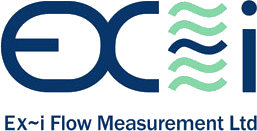As worldwide demand for Liquefied Natural Gas (LNG) rises, so does the number of specialist LNG carriers plying the ocean waves.
All container vessel operators must contend with the increasing cost of heavy fuel oil, and comply with ever tighter environmental regulations. But in a neat example of synergy in practice, gas from the very cargo the LNG tankers are carrying can be used to provide economical energy on board ship.
When LNG is transported, external conditions cause the pressure and temperature in the storage tank to increase, with heat absorbed despite the heavy insulation.
Both pressure and temperature can be kept steady by releasing boil off gas (BOG) from the tank. This is then contained and used for steam turbines with dual-fuel boilers, found on older LNG tankers, or for the dual-fuel combustion engines powered by either gas or diesel fuels. A flow meter allows precise measurement of the BOG as it is drawn off, and ensures greater boiler efficiency.
LNG – a fuel for the future
Recent studies have looked at the use of LNG for fuel on ships outside the LNG sector, finding some impressive outcomes in terms of lower emissions and running costs. In particular, an LNG engine combined with a waste heat recovery system (WHR) is responsible for fewer noxious emissions than a diesel engine with WHR, and despite the higher set-up costs proves cheaper in the long run.
A ship using LNG fuel can reduce sulphur oxide emissions by around 90% compared to conventional heavy fuel oils. A reduction of this size will be mandatory when the Emission Control Areas (ECAs) come into force next year. MARPOL (the International Convention for the Prevention of Pollution from Ships) Annexe VI, responsible for the ECAs, stipulates that vessels operating in low emission areas must record how much BOG they are using. This has led to an upswing in demand from operators for accurate steam flow meters that can take all the variables into account (including velocity, mass flow rate and energy rate), along with flow computers to gather the data.
Ex~i Flow’s simple-to-use SFC3000 Flow Computer is purpose-built to provide precise flow measurement for ship operators around the world, and so helps to manage and conserve our planet’s natural resources. To see what we can do for you call us today on 01243 555284.
